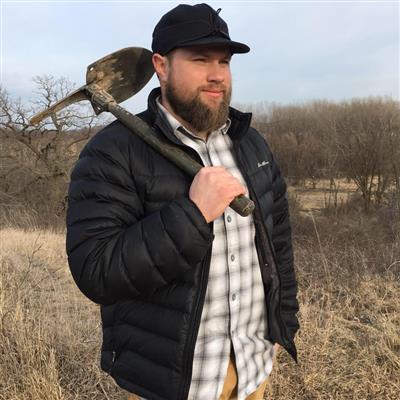Associate Professor
College of Letters and Science | Department of Geoscience
Hometown: Caledonia, MI
Lucas (Luke) Zoet grew up in Michigan and was always interested in the landscapes of the upper Midwest. Through this interest he began studying glacial processes, first as an undergraduate at Michigan State University and then in Grad School at Penn State. Now he works in a range of cold places.
Talks:
How glaciers shaped Wisconsin
Glaciers have been shaping the terrain of Wisconsin for hundreds of thousands of years and perhaps most significantly during the last Ice Age called the Wisconsin Ice Age. As glaciers flowed to the south they were capable of significantly altering the terrain over which they rode, leaving behind a myriad of landforms that we live on and interact with every day in WI. In this talk we will explore where the glaciers were, how they shaped the terrain and examine some of the landforms they left behind.
How the Great Lakes drive coastal erosion
The Great Lakes are capable of quickly eroding their shores and nowhere is this more evident that on the shores of WI. Along much of the WI shoreline the coast is comprised of tall bluffs made of soft sediments. When water levels are high wave action can erode the base of the bluffs which drives bluff retreat. In this talk we will examine the causes, processes and implications of coastal erosion in WI.
Exploring the processes that drive glacier contribution to sea-level rise
Many of the world’s largest glaciers flow directly into the ocean and the speed at which they flow directly determines how much ice they can contribute to sea-level rise. Important processes that regulate glacier flow exists at the boundaries of glacier, such as the location where they sit on their “bed” beneath the ice, the locations where they interact with the ocean and at their surface where they interact with the atmosphere. In this talk we will examine some of these processes to better understand what regulates glacier flow speeds.
